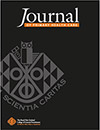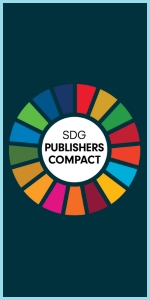HC24181 Full Text | HC24181PDF (677 KB) Open Access Article

Journal of Primary Health Care
Volume 16 Number 4 2024
HC23168Patient demographics and psychotropic medication prescribing in Australian general practices: pre- and during COVID-19 pandemic
 , Abbish Kamalakkannan, Judith Thomas, Gorkem Sezgin, Rae-Anne Hardie, Lisa Pont, Precious McGuire, Christopher Pearce and Andrew Georgiou
, Abbish Kamalakkannan, Judith Thomas, Gorkem Sezgin, Rae-Anne Hardie, Lisa Pont, Precious McGuire, Christopher Pearce and Andrew Georgiou
What is already known: The use of psychotropic medications in Australia has increased over the last two decades, with general practitioners being the primary prescribers. The COVID-19 pandemic exacerbated mental health issues in adults and the older population, leading to increased concerns about mental health and wellbeing. What this study adds: This study estimates prescribing rates of psychotropic medication by patient demographics and found higher rates of prescribing among females, older people, and those with low to moderate SES. There was a consistent increase in prescribing rates between 2018 and 2022, particularly during the COVID-19 pandemic.
HC23168 Abstract | HC23168 Full Text | HC23168PDF (1 MB) | HC23168Supplementary Material (379 KB) Open Access Article
HC24049Practice pharmacists in the primary healthcare team in Aotearoa New Zealand: a national survey
 , Caroline Morris
, Caroline Morris  , Tara N. Officer
, Tara N. Officer  , Jacqueline Cumming
, Jacqueline Cumming  , Jonathan Kennedy
, Jonathan Kennedy  , Lynne Russell
, Lynne Russell  , Eileen McKinlay
, Eileen McKinlay  and Mona Jeffreys
and Mona Jeffreys 
What is already known: The integration of pharmacist roles into primary health care, including general practice, is growing in Aotearoa New Zealand, with geographical variation. Recent health policy and professional guidance support further development of these roles. What this study adds: There are more pharmacist prescribers in primary health care than there were in 2018, with strong interest in future prescribing roles, yet barriers to further expansion remain. Employers need to ensure that primary healthcare-based pharmacists are well supported in their role by other practice staff and that appropriate infrastructure is in place to facilitate this.
HC24049 Abstract | HC24049 Full Text | HC24049PDF (778 KB) | HC24049Supplementary Material (2.3 MB) Open Access Article
What is known about the topic: Even small prescription charges can prevent people from accessing medicines they need, leading to increased use of other health services. The FreeMeds randomised controlled trial found that eliminating $5 prescription charges led to a reduction in hospital use. What this research adds: This paper provides some of the human stories of participants in the FreeMeds study. Many reported having to make changes to how they took their medicines or making choices between obtaining their medicines or other essentials. Some reported hospitalisations due to inability to afford medicines. Few participants had discussed their inability to afford medicines with their general practitioners.
HC23156 Abstract | HC23156 Full Text | HC23156PDF (688 KB) Open Access Article
HC24020Patient perceptions of barriers to effective migraine management in Aotearoa New Zealand
What is already known: International research shows that people with migraine face significant barriers to accessing effective management. Known barriers include expense of health care and treatments, lack of or misdiagnosis and inadequate access to and communication of effective treatment strategies. What this study adds: This is the first study in Aotearoa New Zealand to document barriers to effective migraine management. Findings are taken from the perspective of people with migraine. Issues were identified in a range of areas including health professional knowledge and training, poor interface between primary and secondary care, inadequately communicated care plans and patients feeling stigmatised by health professionals. We offer recommendations to improve access to effective migraine management.
HC24020 Abstract | HC24020 Full Text | HC24020PDF (791 KB) | HC24020Supplementary Material (1 MB) Open Access Article
What is already known: Polypharmacy is increasing as the population ages and causes harm. Deprescribing takes time and requires thoughtful consideration and patient interaction. What this study adds: Focused deprescribing is a significant reflective learning and quality improvement opportunity for medical students and general practitioner supervisors. This student-led activity adds benefit to the student, their supervisor, and the patient of a comprehensive medications review leading to improved knowledge, appropriate deprescribing, and reduced drug interactions.
HC23169 Abstract | HC23169 Full Text | HC23169PDF (730 KB) | HC23169Supplementary Material (1.4 MB) Open Access Article
What is already know: Continuity of care facilitates high-quality care and good patient health outcomes. Prescribing legislation changes in New Zealand (NZ) have resulted in medical and non-medical prescribers prescribing medicines for patients with chronic disease. Previous research has established a correlation between multiple prescribers’ involvement in a single patient’s care, discontinuity and medicines-related risks. What this study adds: Clinical complexities associated with the medicines management of patients with multimorbidity and the current service delivery model are challenging NZ general practice prescribers’ ability to manage continuity of care. There is a need for heightened awareness of the significance of medicines-related continuity of care, so prescribers within and across all health settings are supported to prescribe collaboratively and safely.
HC24034 Abstract | HC24034 Full Text | HC24034PDF (806 KB) Open Access Article
What is already known: Primary care faces significant challenges with multi-morbidity in ageing populations causing increased health care demand and complexity. Optimal use of the whole primary care workforce is key in addressing these challenges. What this study adds: This analysis provides a comparison between New Zealand and Australia regarding medicines that can be accessed via a community pharmacy through their classification as pharmacist-only medicines. It considers potential elements for a successful model of care including commissioning and tools for communication and collaboration with the wider health care team.
HC24050 Abstract | HC24050 Full Text | HC24050PDF (856 KB) | HC24050Supplementary Material (936 KB) Open Access Article
HC24080Registered nurses’ antimicrobial stewardship roles: a qualitative descriptive exploratory study
What is known about this topic: Judicious, appropriate antimicrobial stewardship (AMS) is crucial to reduce the development and spread of antimicrobial resistance. Registered nurses are ideally placed to enhance AMS activities due to their broad skillset and accessibility. Registered nurses, as a major component of the health workforce, are often significantly underutilised in health systems to promote AMS. What gaps this paper adds: This exploratory qualitative study found that registered nurses were clearly engaged in activities contributing to antimicrobial resistance reduction. To increase and enhance registered nurses’ AMS leadership roles throughout the health system they need greater support, increased collegial collaboration, and targeted education in this role. Registered nurses with increased health system support are positioned well to implement AMS programs in New Zealand. @FmhsNursing.
HC24080 Abstract | HC24080 Full Text | HC24080PDF (742 KB) Open Access Article
What is already known: Established cardiovascular disease (CVD) risk factors disproportionately affect South Asians more than other ethnic groups. What this study adds: New Zealand South Asians with modifiable CVD risk factors prefer lifestyle changes before being prescribed medication for type 2 diabetes, hypertension, or dyslipidaemia. Adherence to medication prescribed for these conditions is influenced by cultural practices, perceived need for and concerns about medication, and healthcare provider communication. Health professionals could play a key role in understanding and providing culturally appropriate advice on lifestyle changes for South Asians at risk for CVD.
HC24084 Abstract | HC24084 Full Text | HC24084PDF (725 KB) Open Access Article
What is already known: Medication management for adults with palliative care needs in the last year of life is complex and challenging. However, there is a limited synthesis of the literature describing the breadth of palliative care services provided by community pharmacies. What this study adds: This review provides evidence that community pharmacies worldwide offer a range of services to support people with palliative care needs and face similar challenges concerning how the public perceives their role in delivering palliative care. A thorough understanding of the role of community pharmacies could enhance care quality, extending benefits to individuals not currently receiving palliative care support in the community.
HC24089 Abstract | HC24089 Full Text | HC24089PDF (955 KB) | HC24089Supplementary Material (240 KB) Open Access Article
HC24038Medicines use and polypharmacy in retirement village residents in Aotearoa New Zealand: a point prevalence observational study
 , Zhenqiang Wu, Michal Boyd, Martin J. Connolly, Joanna B. Broad, Cheryl Calvert, Annie Tatton, Kathy Peri and Katherine Bloomfield
, Zhenqiang Wu, Michal Boyd, Martin J. Connolly, Joanna B. Broad, Cheryl Calvert, Annie Tatton, Kathy Peri and Katherine Bloomfield 
What is already known: Older people commonly take medicines to improve their health, however medicines can also be harmful. Little is known about medicines use in retirement village residents in Aotearoa New Zealand. What this study adds:Our findings, along with new information about medicine use in ‘oldest’ age, suggest that retirement village residents may benefit from talking to their health professional about their medicines to see if they are still the right medicines for them.
HC24038 Abstract | HC24038 Full Text | HC24038PDF (709 KB) | HC24038Supplementary Material (704 KB) Open Access Article
HC24182 Full Text | HC24182PDF (645 KB) Open Access Article



